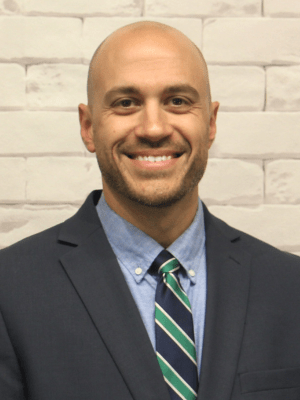By John Walker, Ed.D.
While there are many ways to define what a “waypoint” is, I love how the National Geographic (2023) defines a waypoint: “a waypoint is a reference point that helps us know where we are and where we’re going. Whether we’re driving, sailing, or flying, waypoints help us find our way.”
If you are like me, you love working with a diverse group of people whom the Lord has placed in your workplace, church, and community. The Lord, in His kindness, made us to enjoy fellowship and to live in harmony with Him and with each other. However, because of the fall of man (Genesis 3), this fellowship has been fractured, but deep down, all of humanity is designed with the longing for its perfect restoration.
Working with a diverse group of people is a blessing. Yet, at times, we find it hard to work with others, share the same vision, carry each other’s burdens, and build each other up. We all have different backgrounds, different experiences, and different qualities that can unite or fracture us. Unfortunately, sometimes our work communities can feel more like a penitentiary than a sanctuary.
A close mentor of mine once told me that one of the hardest things to realize in “leadership” is that you will always be the hero and the villain in any decision you make. This is why “leaders” must stand upon principle that is informed by God’s Word and Godly men and women. This is one reason why, I argue, that all school leaders must develop a system by which they are inviting feedback on a regular basis from a diverse group of people within their organization. I call it “waypoints”. Much like the definitions above, the purpose and intent of inviting feedback assists us in knowing where we are, where we need to be, where we are going, and when to course-correct.
As a school leader, when was the last time you considered inviting feedback? More broadly, what would the culture of the school look like if every member of the staff was more consistent in inviting feedback on how they could improve, what perceptions exist, how they could lead better? What gaps exist that we hesitate to share because we are too concerned with how someone may take that feedback? What gaps exist because we do not want to “stir the pot”? How do we make this easier? By inviting feedback, by utilizing waypoints!
Think of a subordinate too fearful to share their concerns or feedback to their superior. Think of a superior who is too harsh or maybe too kind to their subordinate. What would the culture and environment look like if we all spent time inviting feedback for the purpose of growth and improvement? Maybe we are too fearful to receive feedback. Maybe we are fearful of hearing hard truths. Maybe we are fearful of knowing what we already know.
Have we become so proud that instead of leveraging feedback to improve our work, our productivity, our environment, that for the sake of our ego we are unwilling to ask? While we may think that we are doing well, creating a good culture, and that staff are satisfied, how would we know without inviting feedback, and utilizing the feedback as strategic waypoints?
Imagine this: an employee needs input, they need help. You are too shy or concerned about how your feedback may come across, so you decide not to say anything at all. Rather than doing the hard thing of speaking truth in a kind and Godly way, we put up with it. Now, imagine the same scenario, except a drastic difference in both employees. As self-aware employees, we desire to improve the work we do because of Whom we serve. So, because of our sincere desire for improvement, we build in specific waypoints or feedback loops into our weekly and monthly meetings.
Healthy bridges can be built by inviting feedback and giving others the opportunity to speak into your life. When we take a growth-centered approach to our conversations, we place each other into positions of power to give and take feedback. This is much better than the dreaded four lined sentences, “we… need to talk.”
When we invite feedback in our daily work, daily walk, and daily roles, they collectively act as waypoints to help guide and direct us. Each one of us is on a route, somewhere! Hopefully we are not aimlessly running, walking, or crawling through life and work. Each one of us should have direction for one day at a time, one week at a time, and one month at a time. Do you ever think to wake up and ask, “What is my day’s direction?”, or do you take whatever the day throws at you? In one of President Eisenhower’s speeches, he once stated, “The opportunist thinks me and today. The leader thinks us and tomorrow.”
How can we get better at thinking “us and tomorrow” rather than “me and today”?
As leaders, how can we get better at inviting and leveraging feedback to act as waypoints toward our own personal and professional growth, as well as the success of our organization? Leadership together makes a beautiful song. How can you make music by simply inviting feedback?
Three practical ideas:
- Recognize that you do not have all the answers. Unless you can walk on water, calm the storms, forgive sins, and heal sickness, you do not have all the answers. And you know what? It’s ok. It’s ok that you do not have all the answers. Learn. Grow. Excel still more.
- Realize the gift of your team. The Lord, in His perfect providence, has placed everyone in your life for a reason. Do you spend your time gleaning from them and gaining input from them? How can you better leverage your team for those things you do not know or the areas you lack? Realize the specific gifts and talents of those around you, and seek opportunity for them to exercise their gifts, and for you to exercise yours!
- Remember your why. There will be no fruit from labors you did not put in. If you want to change the fruits, change the roots. If you have no goals, you will hit your aim every time. What drives you? What fruit are you bearing? What branches do you need our loving Savior to remove (John 15)? Why do you serve in the role that you serve in? The initial excitement that you had for your labor, where has it gone?
Years ago, I heard someone say, “there is no growth in comfort zone, and no comfort in the growth zone.” Friends, as you examine your life, have we spent too much time in the comfort zone rather than taking a step towards growth by inviting feedback from others? What systematic feedback loops could you create to ensure you have the proper waypoints towards a collective goal, collective direction, and collective mission? Challenge the comfort, embrace the growth, then move with the waypoints!
References
Waypoint. (2023, October). National Geographic. Retrieved February, 2024 from: https://education.nationalgeographic.org/resource/waypoint/

John Walker, Ed.D., is a fellow in the MA in School Leadership and serves as the Superintendent at Central Christian School in Hutchinson, Kansas. He has spent time in both Higher Education and Primary Education as a college Vice-President and continues teaching at the college level as an adjunct instructor in both graduate and undergraduate studies. With over a decade of experience in private education, he appreciates the opportunity to engage with students from a Biblical Worldview framework as he seeks to edify every student to find their identity solely in the person and work of Jesus Christ. He is also a Wanna-Be endurance athlete who enjoys competing in endurance runs and triathlons. John and his wife have been married for 14 years, have 4 children, and are actively involved in their church.
